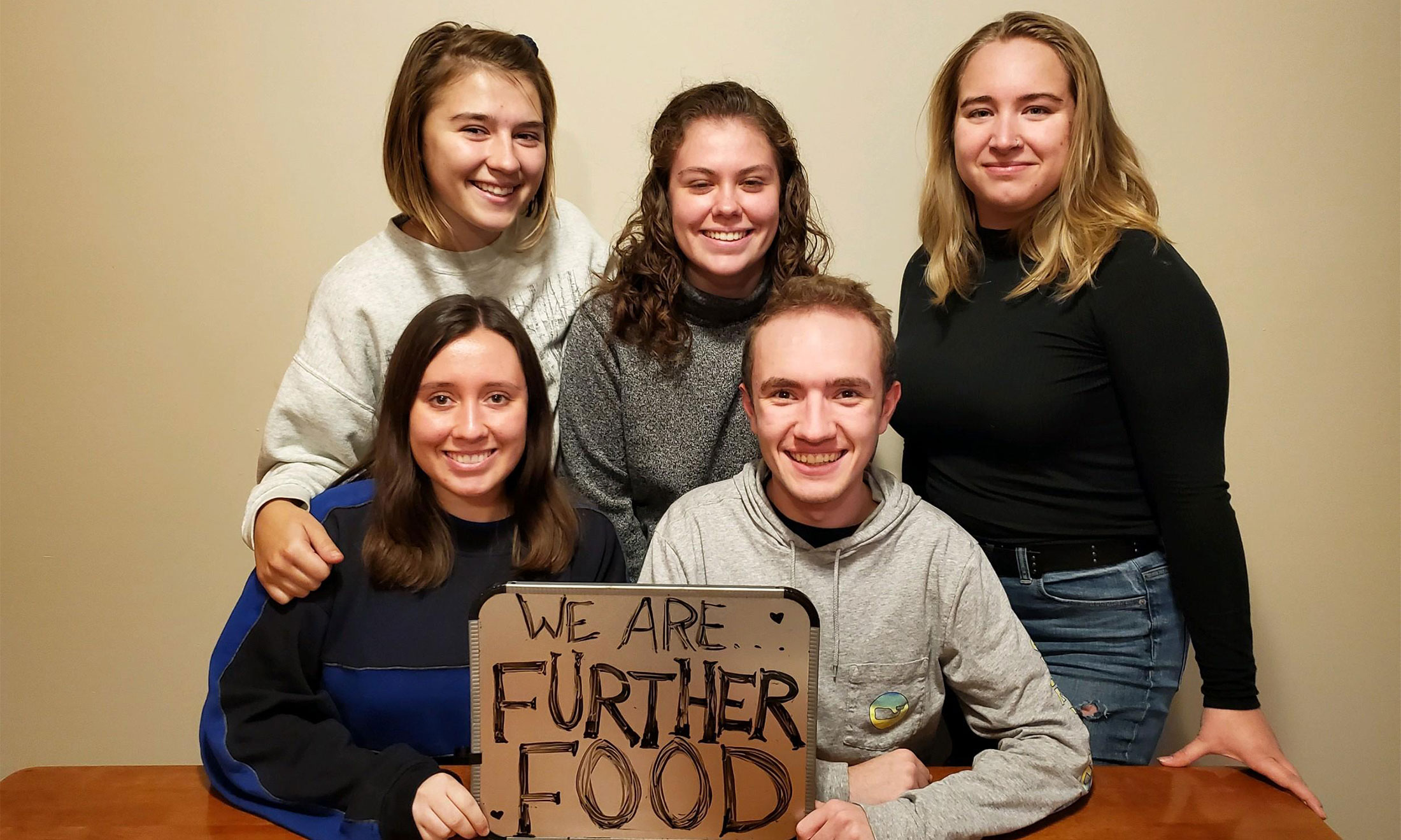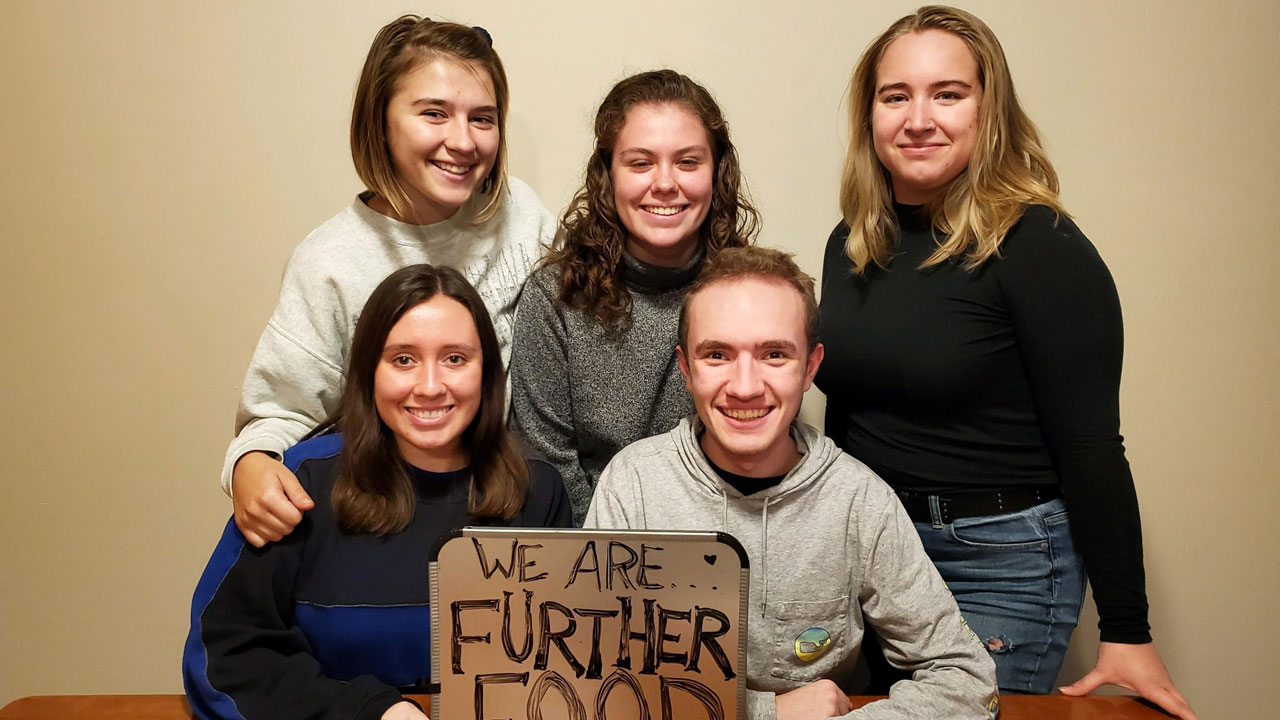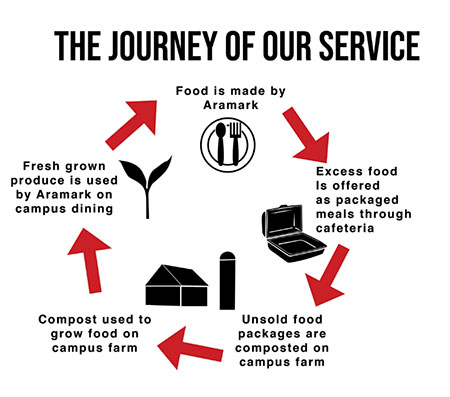OU grad part of team awarded $10,000 prize for sustainable design project
The group focused on increasing food accessibility and reducing waste on college campuses.

Top row from left: Margaux Sellnau, Julia Majewski and Kelsey Cunningham Bottom row from left: Caroline Majewski and Christian Czernik

Recent OU graduate Caroline Majewski is among the winners of Wege Prize 2020, an international design competition in which students devised sustainable solutions to global challenges such as poverty, hunger and waste.
 |
Majewski’s team, Further Food, won second place and a $10,000 prize for designing a regenerative system that transforms unused food from campus dining services into packaged meals, while food waste is diverted to an on-campus composting facility. According to Majewski, the project increases food accessibility for campus diners and maximizes the use of food throughout its life cycle.
“We can monitor the food’s life cycle from beginning to end and eliminate the possibility of food exiting the cyclical system,” she explained. “The compost can be curled back into the university’s landscaping services, community gardens, campus farms, and even used to grow more produce for campus meals. This reduces transportation costs, truck emissions and waste of nutrients in a landfill.”
Along with Caroline Majewski, the team included Julia Majewski (Caroline’s sister) and Margaux Sellnau, of Grand Valley State University, and Christian Czernik and Kelsey Cunningham, of Kendall College of Art and Design of Ferris State University. To test the regenerative system, the team collaborated with Grand Valley State, Ferris State, Saginaw Valley State, Marquette, Western Michigan and Central Michigan universities.
After being evaluated by a panel of experts, five finalists were chosen from an initial field of 29 teams – representing 24 countries, 64 academic institutions and 100 academic disciplines. Caroline Majewski graduated this spring with a BA in English.
Further Food’s design drew positive feedback from the judges.
“We’ve heard ideas about campus food waste before, but what really impressed the judges is how this team’s vision extends beyond a single campus and into a model that could be replicated on any campus,” said judge Colin Webster, a learning content manager with the UK-based Ellen MacArthur Foundation, a global leader in circular economy research, advocacy, and development. “But the biggest implication for me is the potential for this to go beyond a campus and into all sorts of different environments. If you get this right, the model could really take off and become a new normal for how to deal with food waste.”
The $15,000 first-place prize was awarded to team Hya Bioplastics for devising a process that blends dried water hyacinth fibers and boiled cassava starch into a biodegradable raw material for the production of disposable plates, cups, silverware and packaging. The third-place prize, worth $5,000, went to team Pellet for developing a system that directs organic waste from urban restaurants and residences to rural farmers as a source of affordable and environmentally friendly fertilizer.
Majewski said she plans to save her share of the prize money for the future and is “overjoyed” to see the work of her team and others come to fruition.
“During the presentations, we were all cheering over Zoom together, amazed at every team that presented and so proud of Margaux, who gave our presentation,” she said. “It’s been an amazing experience.”
Wege Prize is a West Michigan-born concept developed by Kendall College of Art and Design of Ferris State University’s (KCAD’s) Wege Center for Sustainable Design, with the support of The Wege Foundation. This annual competition ignites game-changing solutions for the future by inspiring college students around the world to collaborate across institutional, disciplinary, and cultural boundaries and redesign the way economies work. To learn more, go to wegeprize.org.


 July 8, 2020
July 8, 2020